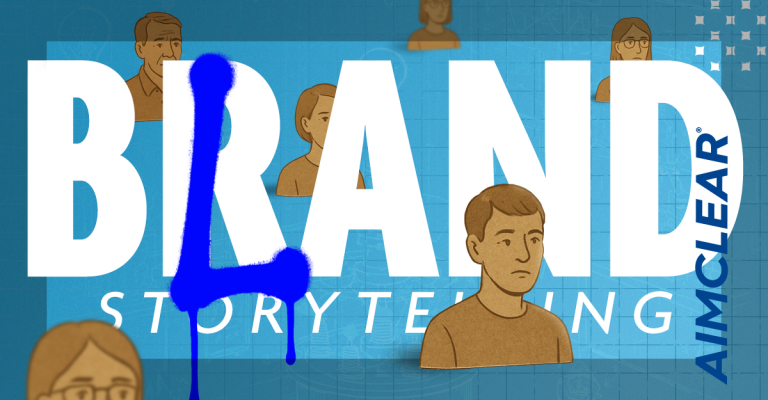Welcome to the latest episode of “SEO Is Dead… Again!” where the plot twist is that we’re still here—and we’ve got better tech. Yes, this is a recurring theme! I’m your SEO pilot, Lea Scudamore. We’re going to finish our precheck list before backing away from the gate so please take your seats and buckle up.
TL;DR
Don’t fire your SEO, pack your website into a carry-on, toss it onto the chatbot conveyor belt, and hope the revenue arrives intact. Some brands looking to do SEO on the cheap think such an approach is a “strategy,” but the reality is they’re playing a high-risk game of roulette. Would you really trust your entire business to just…show up on the other side, intact, trusting machines only with the job? Of course, not.
Ready for Takeoff
AI is here. It’s powerful. It’s a game-changer. But it’s not the be-all-end-all solution. Not surprisingly, clients are panicking (again), and many SEOs are wondering if they’ve been replaced by a chatbot that can run solo–better, faster, stronger, and with a vaguely smug tone. Clients are asking, “Can’t ChatGPT just do this now?” Sure—just like modern commercial jets can essentially take off, fly, and land all without human intervention. Passengers could travel this way, but would you truly be comfortable doing so?
To every SEO feeling the existential pressure: breathe. This is not the first time the ground has shifted. It’s not even the tenth. We’ve had Panda, Penguin, Hummingbird, BERT, MUM—and now ChatGPT. We’ve always danced with change. This is just the newest song on the playlist.
We’ve Been Flying This Aircraft Through Turbulence Since Day-One
SEO has never been static. It’s been a rollercoaster inside a tornado wrapped in an algorithm update. We’ve been flying this plane through turbulent times blindfolded before—AI just turned the cabin lights on.
The SEOs who want to remain essential will realize that we are the pilots. We’ve trained through link penalties, Mobilegeddon, core updates, and zero-click SERPs. AI is not the villain here—it’s the upgraded cockpit with powerhouse new tools to make the SEO pilot better at what they do. Think radar, autopilot, and weather tracking. But you still need someone who knows how to fly the thing.
Real SEO is about taking in more information, more data, and more analysis, then making individual strategic decisions to drive visibility and ultimately land attributable revenue.
AI Is the Co-Pilot, Not the Captain
Here’s the deal with AI:
- It’s fast. (Yay!)
- It’s clever. (Sometimes!)
- It’s confidently wrong. (Too often!)
It’ll help surface data, speed up ideation, and even draft content. But it won’t tell you why your client’s rankings tanked after that CMS migration or how to build a content cluster that drives both traffic and revenue. That’s still you. That’s experience. That’s judgment. That’s SEO.
Cheaper Flights? What Happens When Clients or the C-Suite Want “Cheaper SEO”
You’ll hear it:
- “Since AI can do some of this, shouldn’t we pay less?”
- “Shouldn’t you be able to do more, faster?”
Counterpoint:
- “Since calculators exist, should we stop hiring accountants?”
- “Should we fire the pilot because GPS exists?”
AI makes us faster. It frees us up for the deep work that actually moves the needle. So no—SEO isn’t cheaper. It’s more powerful.
And before you start with your “SEO used to be free” line—no, it was never free. There’s always been tons of man hours behind it.
You’re paying for:
- Better insights, faster
- Fewer mistakes, smarter pivots
- Strategic decisions that take your business further
Because when you “go cheap,” you’re rolling the dice.
You lose your luggage—and everything in it.
Goodbye $XX,000 strategy. Hello $50 chatbot voucher and/or hours listening to hold music.
AI can churn out tons of data and content in seconds, but when it comes to picking up on subtle shifts in user behavior or understanding the specific needs of your niche audience? It’s like asking a GPS to navigate a field of landmines—sometimes, you need that human touch to make the right call (one made with greater confidence because of the extraordinary new insights available)
Explaining SEO, AEO, and GEO in 2025 Without Losing Your Mind
With the advent of AI and the evolving nature of search, new terms have emerged that sound complicated but are essential to understanding where SEO is headed. Feeling acronym fatigue? Cool, here’s the cheat sheet to help you discuss with your clients or internal team:
SEO (Search Engine Optimization): Still the core—technical cleanup, content optimization, keyword strategy, the works.
AEO (Answer Engine Optimization): Making sure your brand is the one that AI bots like ChatGPT and Perplexity quote when they’re trying to sound smart.
GEO (Generative Experience Optimization): Optimizing for Google’s AI-powered, summarize-everything SERPs. You want to be the source, not the footnote.
You’re not just optimizing for one screen anymore. You’re building a presence across all digital experiences. This is marketing. It’s always been evolving. This is normal.
You’re now free to walk about the cabin: Talking to clients-keep it real
Need a few lines when you’re in the hot seat? Try these:
- “AI is like having autopilot. But do you really want the plane flying itself through a thunderstorm with no one in the cockpit?”
- “You’re not paying me to copy/paste from AI. You’re paying me to tell you what the data means, why it matters, and what to do about it.”
- “Yes, I use AI. It’s my powerful new tool, not my replacement. Would you rather have a chef who can cook faster, or one who lets the oven write the menu?”
Final Descent: Let’s Stop Freaking Out and Lead
This industry has always been about change. If anything, AI is just another stop on the rollercoaster of SEO evolution. It’s the next challenge, the next wave to ride.
So, to all the SEOs with years under your belt: Take a moment and soak it in. You were built for this. You’ve been iterating, adapting, and flying through chaos long before AI came on the scene. Nothing’s changed—except the tools we have in our hands give us even more reason and ability to be great at what we do. With AI in the cockpit, we’re flying smarter, faster, and better than ever before.
Now to you fresh-faced rookies who came in after we did all the heavy lifting. Consider yourselves lucky that you don’t have to scrape through spreadsheets, pivot tables, search engine updates alone, scrambling to guess what’s going on… It must be nice. (sigh)
Here’s the thing, though: you’re not off the hook. You’re about to get a crash course in SEO, just like we did—but now, you’ve got AI in your corner. That’s the good news.
The bad news? You’re still going to have to work your a$$ off. SEO isn’t as easy as it looks—even with better tools. You still must understand the strategy, the context, and the big picture. AI’s great for helping you move faster, but experience, expertise, and critical thinking will make all the difference.
Welcome to your final destination.
In the end, SEO is still the heartbeat of online visibility. AI can assist, but it’s the SEO strategy—the deep, layered work that ties everything together—that makes the difference between ranking #1 and disappearing into the abyss. Even though the burden to do more feels like pressure, no one is going to die if the buttons we push and knobs we turn don’t do what we thought.
SEO isn’t slowing down. It’s only getting faster, smarter, and more integrated with AI. Ready to fly beyond the sound barrier? Reach out and let’s make sure your SEO strategy is as cutting-edge as the tools we’re using.
The local time is on your phone, and the weather? That’s right outside your window. It was a pleasure serving you today.
About the author: Lea Scudamore is the Director of SEO at Aimclear, where she leads award-winning strategies in technical SEO, accessibility, and content creation and optimization. With over 20 years of experience, she specializes in helping brands grow sustainable search visibility through data-driven, user-focused solutions.









